How to electrify an orchard
See how a small farm near Wānaka kickstarted a global movement to grow food completely free of fossil fuels.
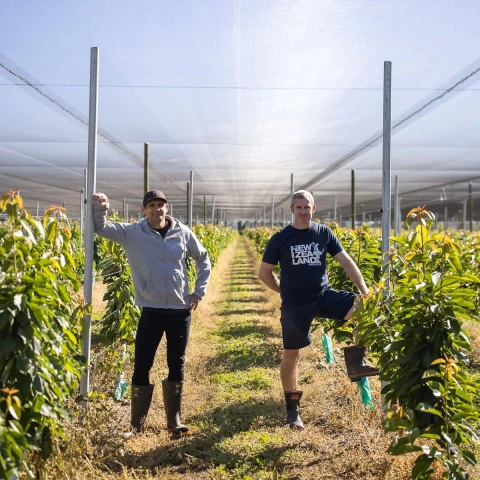
See how a small farm near Wānaka kickstarted a global movement to grow food completely free of fossil fuels.
When Mike Casey decided to sell up his software business in Sydney, he didn’t have firm plans for what would come next. But he and his wife Rebecca were certain about one thing - they wanted to move to Wānaka.
“Skiing, mountain biking, kayaking. Three things I enjoy more than anything in the world, and three things Wānaka has in spades.”
The move went well, and Mike and Rebecca found the outdoor lifestyle they’d been dreaming of. It also handed them something they hadn’t expected - a project which has put them at the forefront of a movement to eliminate fossil fuels from farms around the country.
“We came across this farm about 30 minutes south of Wānaka, with nine hectares of land and a really nice house, for pretty much the same price as a four-bedroom in Wānaka.”
The first thing they decided to do with the land was to plant cherry trees, a response to the climate change anxiety that Mike had been experiencing.
“I wanted to start sequestering carbon as soon as I could. In this region, you’ve pretty much got a choice between apples, apricots and cherries. And let's be honest, cherries are the coolest, so that's why we chose cherries.”
Mike says the journey from planting the cherry trees to running an orchard with zero fossil fuels seemed a natural one. But it was also a complete departure from the sector’s traditional reliance on diesel machinery. Every year, one million tonnes of carbon emissions are created in Aotearoa from fruit growing and horticulture.
“I had people telling me things like this couldn’t be done without diesel, but every time I sat down and did the research, I found there was an electric alternative.
“Once the trees were in, for example, we installed solar panels and started irrigating with electricity generated from the sun. From there it became a question of ‘what can we electrify next?’”
Mike’s approach differs from ‘zero carbon’ food, which often uses fossil fuels and tries to mitigate the emissions by purchasing offsets or planting trees. He is unconvinced that offsetting will deliver the shift in behaviour needed to make food production more climate friendly.

“Look at it this way. You can’t just be cruel to your chickens and then make a donation to the SPCA to offset that cruelty. So doing it for the climate, you can see how people become slightly jaded.
“Our approach is much simpler. If we stop burning fossil fuels we solve the climate crisis. Therefore, we're zero fossil fuels, there are no fossil fuels anywhere on our property, so the small emissions we do create are effectively a rounding error.”
The frost fans used over the colder months at Forest Lodge are another proof point that electrification of orchards is both possible and achievable. A quick look at the websites of providers in New Zealand shows a range of models available, but all running on fossil fuels.
“People told me I couldn’t get electric frost fans, but I managed to find some in South Africa. So we imported them and now we’re the first to use them in New Zealand.”
“This year, we’ll be getting our first fully-electric tractor which is a huge milestone, both for us and for the message it sends to the wider sector that fossil fuels are increasingly unnecessary.”
Mike says going electric has involved some operational changes to the way orchards would typically be run, but any inconveniences are easily outweighed by benefits.
“Our ride-on mower runs for two hours, then you have to charge it up for a couple of hours. This means mowing is done in shifts rather than as one job, but it’s a hell of a lot cheaper to run, and quieter too.”
Going electric at Orchard Farm has spared a huge amount of carbon from being pumped into the atmosphere every year, according to Mike. But he says the long term vision is even bigger.
“We want to eliminate fossil fuels from as many farms and orchards as possible. We know consumers are prepared to support fossil-fuel-free produce, and we believe it is the future of horticulture in Aotearoa.”
The Caseys are now getting ready to launch an accreditation system for businesses and households making the move to eliminate fossil fuels, and are bringing together like-minded businesses to join their movement at www.nz0.com.
“It’s amazing how a small farm in Central Otago has changed our lives in ways we’d never expected. It has shown us that we can live well in Aotearoa without fossil fuels and that making the transition is possible if we just roll our sleeves up and get stuck in.”
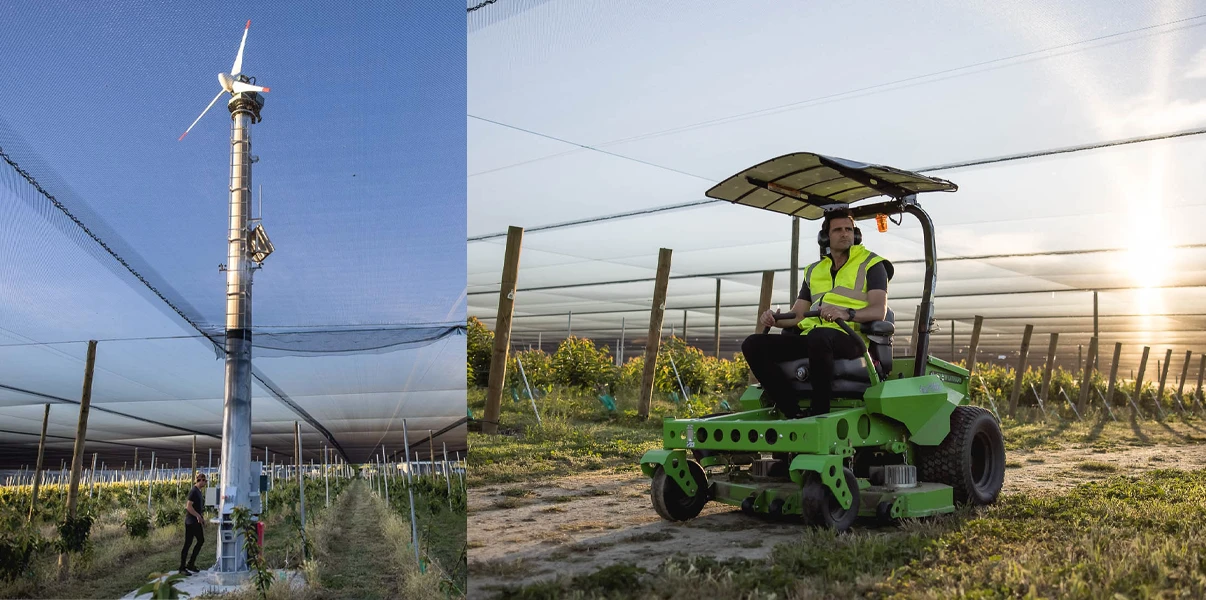
Learn how New Zealanders from all walks of life leading the way to a zero-carbon Aotearoa. Each of them has overcome the challenge of transitioning to cleaner energy, proving that as a country we have the ideas, the technology and the ambition to make this happen.
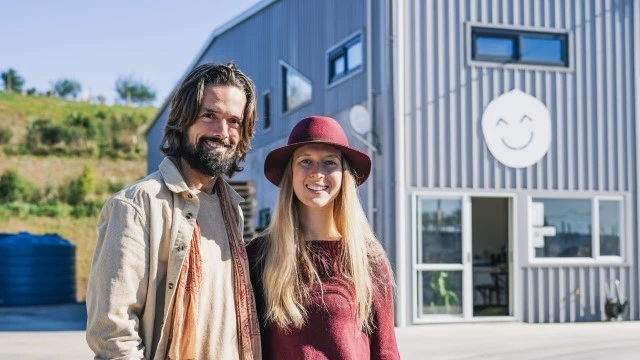
Raglan Food Co leads by example when it comes to looking after their community and the environment.
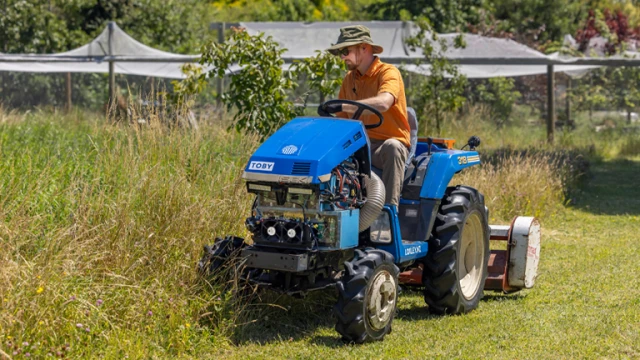
Electrifying a tractor doesn’t just make it cleaner and cheaper to run. It also makes it exponentially more useful, according to Canterbury-based innovator Duncan Aitken.
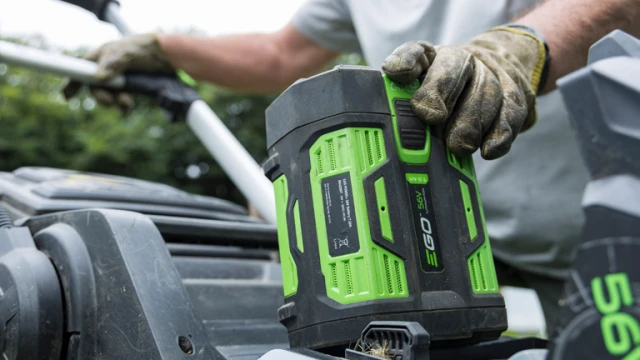
The days of having your peaceful weekends ruined by the sound of lawn mowers and leaf blowers will soon be over.
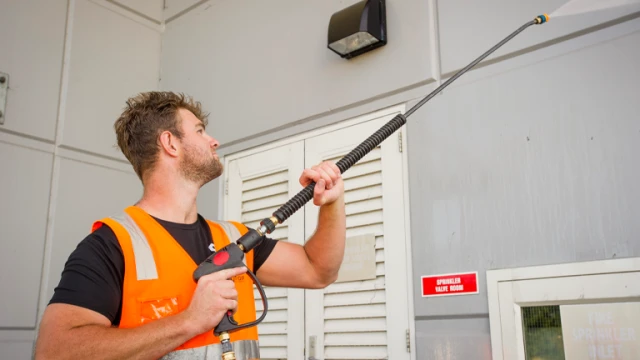
Every day, hundreds of commercial water blasters are pressed into service around New Zealand. They keep our built environments clean but there’s a catch. They’re surprisingly bad for the environment.
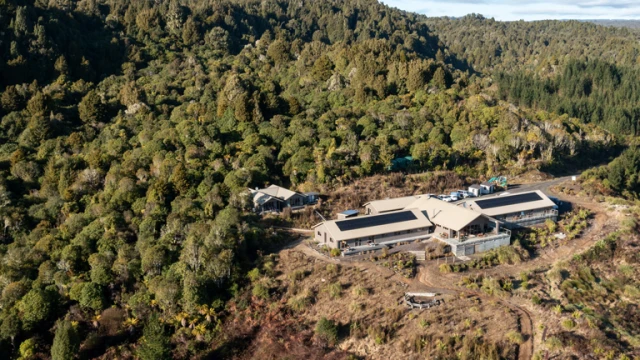
In the Central North Island, a unique lodge is proving it's possible to run an eco friendly tourism business in Aotearoa without burning through fossil fuels.